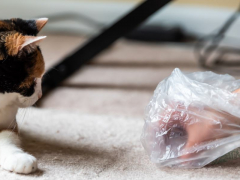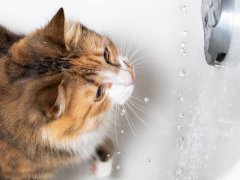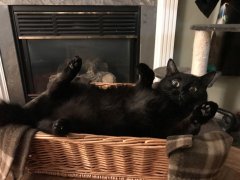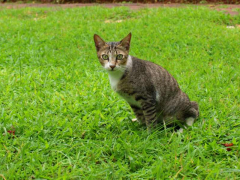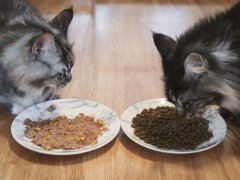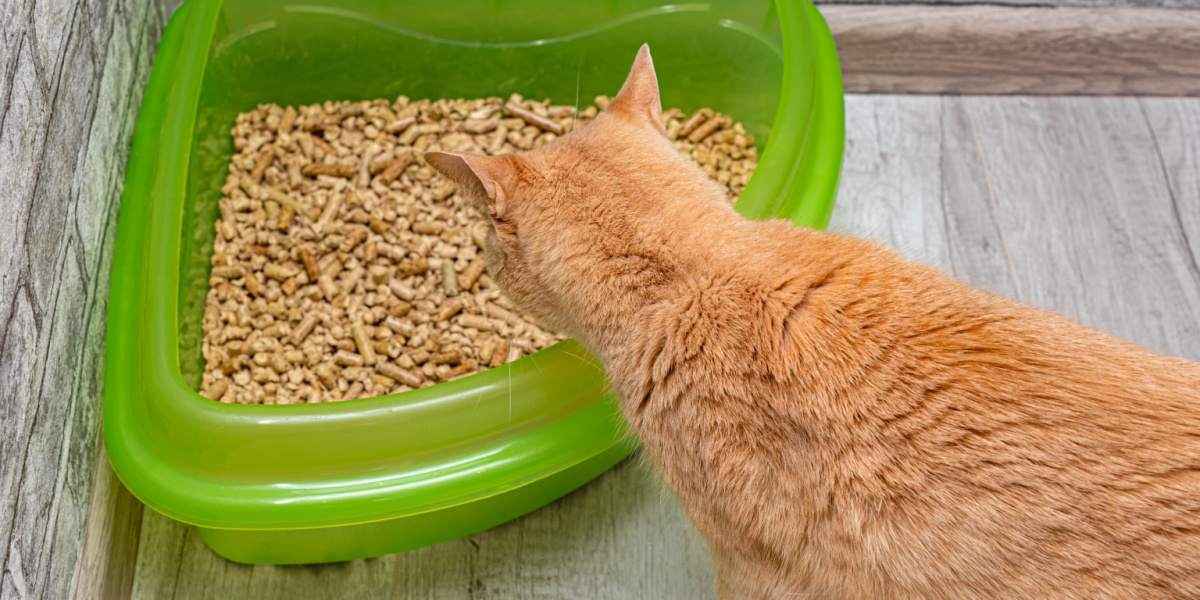
Cats can do lots of strange things. If your cat has recently started eating their litter, you might have wondered if this is normal or not. Moreover, if they do eat their litter, how do you stop them?
If you only notice your cat eating their litter once and they don’t do it again, it’s probably not necessary to worry. However, if they continue to do so, it might be indicative of health issues, so you should see a vet to make sure your cat is OK.
Why Do Cats Eat Litter?
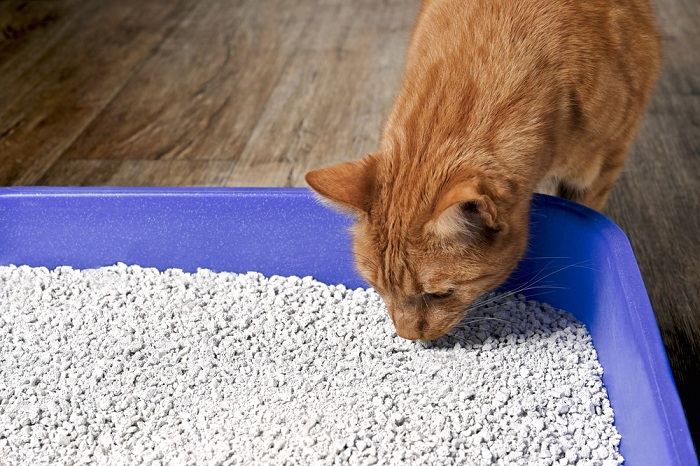
Eating non-food items, a condition called pica, can have behavioral or health causes.
There is a number of reasons that your cat might be eating their litter, for example, anemia, nutritional deficiencies, stress, or even just boredom.
Eating non-food items, whether cat litter or something else, is a behavior known as pica. Pica and can indicate possible health problems or behavioral issues. This isn’t just a cat behavior though; humans and other animals can experience pica as well.
Also Read: Why Do Cats Eat Plastic? (And How To Get Them To Stop)
Health Issues That Make Cats Eat Litter
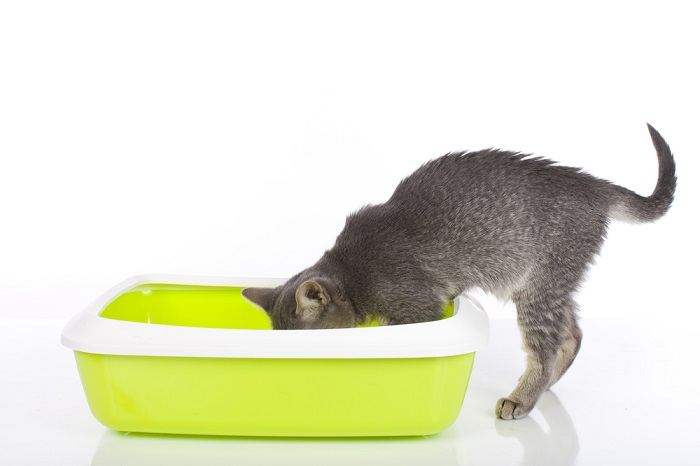
Anemia, which can lead to cats eating their litter, can be caused by several different health issues.
Anemia is one reason a cat might be eating their cat litter. Anemia occurs when the body lacks enough healthy red blood cells and hemoglobin to carry oxygen around the body.
The most common sign of anemia in adult cats and kittens is paleness. Your cat is covered in fur, so you won’t often notice that they’re pale unless you check their gum color. To do this, gently lift their upper lip and look at their gums. The gums should normally be a nice pale pink color. If your cat’s gums look pale, white, or blueish, take them to the vet to be examined in person as soon as you can.
Anemia might be a secondary condition to an underlying health problem such as kidney disease or cancer. Therefore, it’s vital to get veterinary advice, especially if your cat seems dull, inappetent, if they have weight loss, or if they start to vomit or urinate abnormally.
Infectious causes of disease that might lead to anemia in cats are feline leukemia virus (FeLV) and feline infectious peritonitis (FIP). These diseases will cause your cat to lack certain dietary nutrients like Iron, which can contribute to their anemia, and might stimulate your cat to try to increase their uptake by eating the litter.
Also Read: 10 Most Dangerous Diseases In Cats
Behavioral Problems That Make Cats Eat Litter
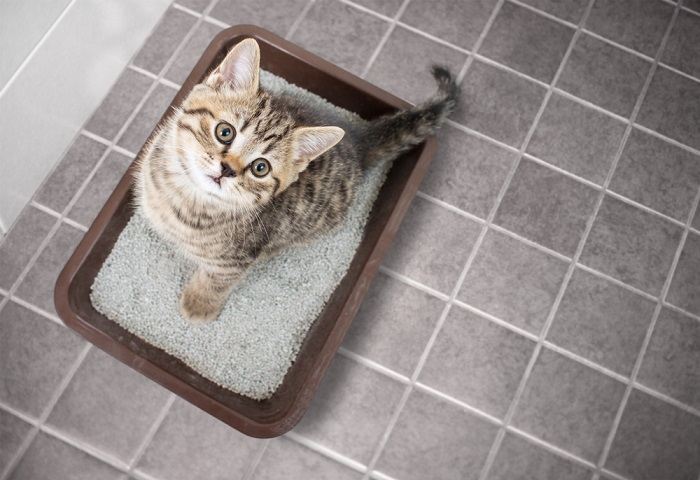
Some perfectly healthy cats might eat their litter as a result of a behavioral issue.
Cats are very curious creatures and kittens often try to eat their litter in order to experiment. If you see them do this once or twice but never again, it’s probably not worth worrying about. However, if it becomes a habit, it is not healthy and should be discouraged.
Sometimes cats might become compulsive about eating their cat litter, especially if they are stressed. For example, cats might becomes stressed by moving house, losing a friend or loved one, or having a new animal come and live with them.
Another reason cats might start eating the litter could be down to boredom. If your cat is a house cat and isn’t getting enough stimulation, play, or human interaction, eating their litter could be a symptom of this.
If you’re worried this might be why your cat is eating their cat litter, make sure to schedule short and frequent playtime with them, interact with them throughout the day if you’re home, or try out some puzzle feeders or treats to keep them occupied for longer.
Also Read: The 10 Best Cat Slow Feeders & Puzzle Feeders
Is It Bad For Cats To Eat Litter?
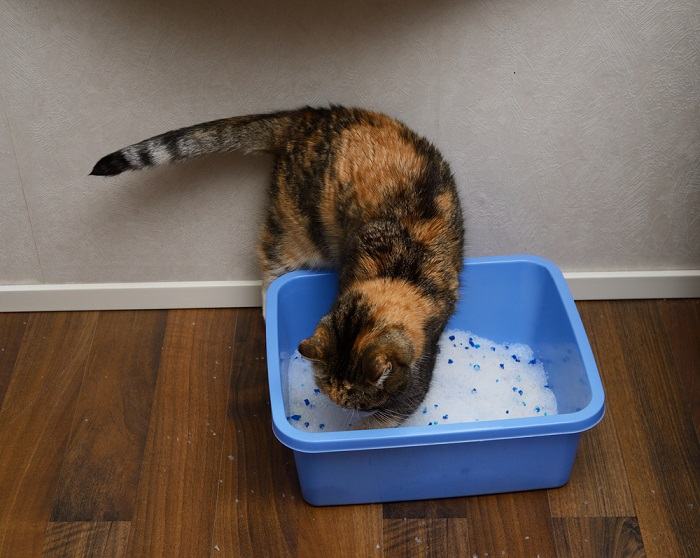
Eating any type of litter is not healthy for your cat, so it’s important to put a stop to it as quickly as you can.
It is certainly not healthy for cats to eat litter and if they do it often enough, could have some serious health consequences depending on the type of litter. If the litter you use is clumping litter, the bentonite in the litter can react with feces in your cat’s intestine and form some extremely serious intestinal blockages in their digestive system. These can be fatal unless prevented or treated by your veterinarian quickly.
How To Stop Cats From Eating Litter
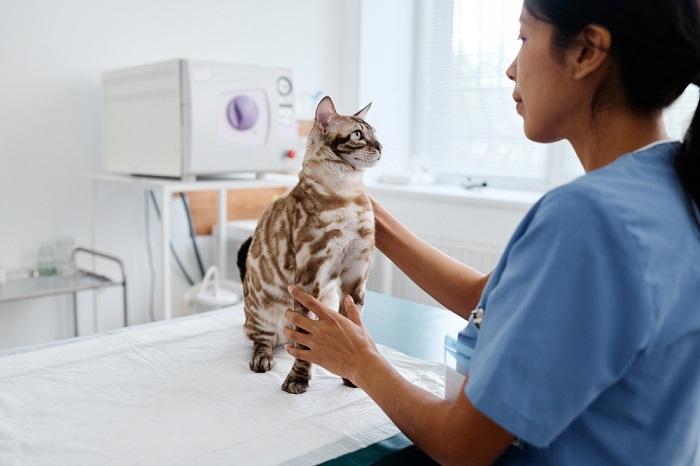
A health check from the veterinarian is the first step if your cat is eating litter.
If your cat is making a habit out of eating their litter, first discuss it with your veterinarian as they might want to do some investigative tests to make sure it isn’t a symptom of a more serious underlying health issue. If your cat is diagnosed with something, then treatment or a recommended diet change might resolve the litter-eating habit by itself.
Once you’ve ruled out any medical conditions causing them to eat their cat litter, it’s important to discourage your cat from eating their cat litter, especially if it’s clumping cat litter, before they cause themselves any harm.
As discussed above, if boredom could be the cause, invest in food puzzles and new toys, and spend more time interacting with your cat.
Check with your veterinarian that your cat’s diet alone is sufficient in providing them with all the nutrients, vitamins, and minerals they need. High-quality cat food should have everything they need included. Specific varieties of food are intended for older cats and young kittens to make sure they each have the correct nutrition for their stage in life.
Once you’ve ruled out all of these, then cat owners might want to look at changing the type of litter they use from a clay-based one to a corn-based, paper, wood chips, or wheat-based litter.
If you see your cat make their way to their litter box to eat (don’t confuse this with actually needing to toilet!), try to distract them away from it with a toy or treats, or discourage them with a firm “no.” The key to this is repetition and consistency, which might take some time.
Finally, you can utilize cat pheromones or catnip to relax a stressed or bored cat. If you leave catnip around the house or outside, keep it away from the litter box so that they don’t associate them with each other.
Also Read: The 5 Best Catnip Products For Cats (Spray & Toys and More Surprises)
